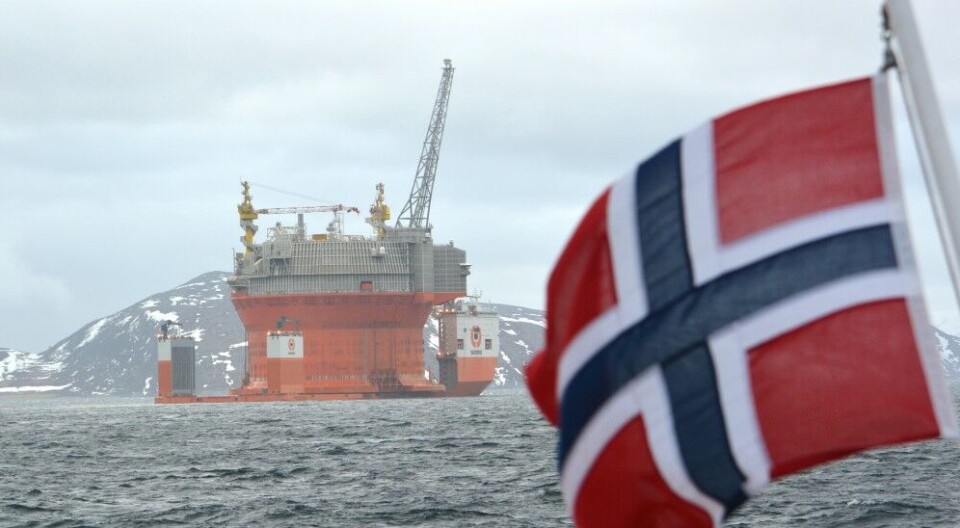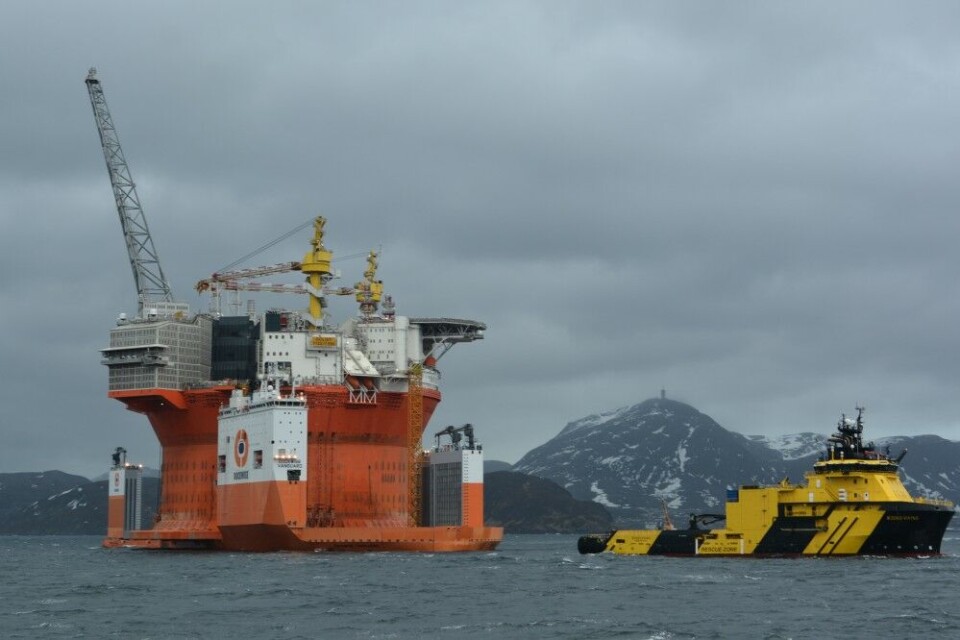
Despite warning from authorities, Eni kept on pumping Arctic oil with unsafe platform
It is high time that the company is deprived its operator responsibility, environmentalists say as Eni continues to push the limits in its scandal-ridden «Goliat» project.
p.p1 {margin: 0.0px 0.0px 0.0px 0.0px; font: 11.0px ‘Helvetica Neue’; color: #000000; -webkit-text-stroke: #000000}p.p2 {margin: 0.0px 0.0px 0.0px 0.0px; font: 11.0px ‘Helvetica Neue’; color: #000000; -webkit-text-stroke: #000000; min-height: 12.0px}p.p3 {margin: 0.0px 0.0px 10.6px 0.0px; line-height: 20.0px; font: 17.0px Georgia; color: #292929; -webkit-text-stroke: #292929; background-color: #ffffff}p.p4 {margin: 0.0px 0.0px 0.0px 36.0px; text-indent: -36.0px; line-height: 20.0px; font: 17.0px Georgia; color: #a80e0f; -webkit-text-stroke: #a80e0f; background-color: #ffffff}p.p5 {margin: 0.0px 0.0px 0.0px 36.0px; text-indent: -36.0px; line-height: 20.0px; font: 17.0px Georgia; color: #292929; -webkit-text-stroke: #a80e0f; background-color: #ffffff}p.p6 {margin: 0.0px 0.0px 0.0px 36.0px; text-indent: -36.0px; line-height: 20.0px; font: 17.0px Georgia; color: #292929; -webkit-text-stroke: #292929; background-color: #ffffff}p.p7 {margin: 0.0px 0.0px 0.0px 36.0px; text-indent: -36.0px; line-height: 20.0px; font: 17.0px Georgia; color: #292929; -webkit-text-stroke: #292929; background-color: #ffffff; min-height: 20.0px}span.s1 {font-kerning: none}span.s2 {font-kerning: none; color: #292929}span.s3 {font-kerning: none; color: #292929; -webkit-text-stroke: 0px #292929}span.s4 {text-decoration: underline ; font-kerning: none; color: #a80e0f; -webkit-text-stroke: 0px #a80e0f}span.s5 {font-kerning: none; -webkit-text-stroke: 0px #292929}span.s6 {font-kerning: none; color: #a80e0f; -webkit-text-stroke: 0px #a80e0f}span.s7 {font: 17.0px Georgia; font-kerning: none; color: #a80e0f; -webkit-text-stroke: 0px #a80e0f}span.Apple-tab-span {white-space:pre}
It has been on-and-off with production at «Goliat» ever since the Italian company Eni pushed the start button in March 2016. And the troubles seem to have no end.

Environmental organization Friends of the Earth Norway now demand that Eni is deprived its operator responsibility for the project. The demand comes after newspaper Dagens Næringsliv this week revealed that Eni had restarted production despite warnings from the Norwegian Petroleum Safety Authority.
«If [Norwegian Minister of Oil and Energy] Terje Søviknes does not resolve this issue he will carry part of the responsibility if something goes wrong at Goliat», says organization leader Silje Ask Lundberg. «It is high time that Eni is deprived its operator responsibility for this scandal-platform», she underlines.
The same message has previously been highlighted also by leader of Bellona Frederic Hauge.
According to DN, Eni on 3rd October restarted production despite serious technical problems with the platform and warnings from the Petroleum Safety Authority. The government watchdog had made clear to the company that a reopening of production would be considered a violation of rules on explosion security.
Two days later, the Safety Authority ordered the close-down of the platform.

«On a platform where there is oil and gas, you need to have control over all potential sources of explosion […] and we have ordered the operator to keep production closed until it has got control», says Øyvind Midttun, press contact for the Authority.
The latest close-down comes after several whistleblowers warned the authorities about troubles with the electrical system on the platform
Inspectors were sent to the «Goliat» in late September to check the situation. They concluded that Eni does not meet rules and regulations for electricity security and reported serious security deficiencies with the platform’s electric engines.
Production at Goliat has been halted a number of times over the last year. On Sunday the 29th October, the platform personnel once again had to make it to the lifeboats as alarm bells warned about a possible gas leak. Two helicopters took off and were to start evacuations when the company announced it was a false alarm.
It was the tenth time in 18 months that an evacuation had been initiated. According to Dagens Næringsliv, the Goliat has been closed 40 percent of the time since launch in March 2016.
Director of external communications and public relations, Andreas Wulff, in April this year told the Barents Observer that Goliat’s first year of operation «had been more troublesome than expected.»
Several gas leaks were detected during the first year of operation. In addition, Goliat has seen a list of other troubles:
• March 2016: Oil production starts
• August 2016: Platform evacuated after power loss
• December 2016: Production stopped due to error with pipe between platform and tankers
• February 2017: Production halted due to failure in a valve
• April 2017: PSA issues notice because some security systems were not known to personnel on board
Goliat field is facilitated by using a subsea system consisting of 22 wells. There are twelve production wells, seven water injectors and three gas injectors. At full capacity, the field will produce 100,000 barrels of oil per day.
In total, the field is estimated to contain about 180 million barrels of oil. It is the first oil field in operation in the Barents Sea.
Production is conducted with a floating Sevan Marines cylindrical production unit, a Sevan 1000 FPSO.
















